|
"COLE AND BEANA, COME AND PRAY!" My husband's voice rings out through the house as part of our familiar bedtime routines. My college-age daughter and son drop what they're doing and schlep their way to our bedroom. When they were little, they used to run and jump onto our king-sized bed and snuggle between us in a big people-sandwich enveloped in our arms. Now that they're adult sized, one or the other still finds their way onto the bed. Entering their twenties, they still let us fold them into us and run our fingers through their curls as we each name two items for which we're thankful. "I'm thankful I aced my test, and for the rain we had today," says Beana. "I'm thankful for the Birkenstocks I got and how GOOD they make my feet feel!" says Cole. "I'm thankful for getting all the bills paid, and still having money left over." said Scott. I'm very thankful for that too! "I'm thankful for the overcast skies today. I'm thankful that my garden is coming up all over the place!" I say. And then we pray. I'm thankful, that in this society inundated by racial tension, colors blend in my home. Able to touch without reservation. Talk without hesitancy of difficult societal issues. And listen, laugh, get angry, speak loudly, safe in the understanding that race is not entwined with those emotions. Can we ever get to that place in our society? Not color blind. Not negating what is clearly seen on the surface, but getting past it to the depth of engaging relationship anyway? Long ago in college, I had to address head-on the racist undertones that had prevailed in my childhood home and how they impacted my thinking as a young woman. I had not been raised around Black families and had grown into an adult being uncomfortable with the unfamiliar, with all the expected trappings of biased assumptions towards the Black students I interfaced with. That included being a Resident Assistant in a very diverse dorm on the Buffalo State campus. Lots of kids from downstate near New York City were attending school there. I started to put myself into positions and places where I as a White person, was in the minority. It was very uncomfortable, but it forced me to think outside the box and to explore my perceptions of people. I recall once, making a mental parallel of viewing myself as a little white rat (pun intended), with my "human" self picking up my "rat" self by the scruff of the neck and lowering me into some complex maze saying, "Now let's watch how you'll handle this." Eventually, I got comfortable, with being uncomfortable. I think that's a thing for White people....the need to get comfortable with the uncomfortable. So, perhaps the discomfort many people are feeling in our society right now serves a functional purpose? Perhaps it forces us to look at ourselves and internally grapple with our unexpressed assumptions. If that is an outcome for this national struggle, in a tentative sort of way, I'm thankful for that too.
4 Comments
I've been reading Up From Slavery, an autobiography of the life of Booker T. Washington and his journey from slave to student to university founder to sought-after national speaker.
In the late 1800s, Washington was asked to join a committee to appear before congress to procure government support for the Atlanta Cotton States and International Exposition. In the planning stages of the exposition, it was "decided that it would be a fitting recognition of the coloured race to erect a large and attractive building which should be devoted wholly to showing the progress of the Negro since freedom. It was further decided to have the building designed and erected wholly by Negro mechanics. This plan was carried out. In design, beauty, and general finish the Negro Building was equal to the others on the grounds." Washington was asked to head up the project, but he declined in order to better devote time to his work at Tuskegee Institute. Then, after years of struggle and dedication to changing the plight of Black Americans a mere 30 years after the Civil War, Washington was asked to be an opening speaker at the Atlanta Cotton States and International Exposition, at Atlanta, Georgia, on September 18, 1895. He accepted. The whole speech, one of his most renowned, is worth the read. This one excerpt is a jewel in the crown. "...... in your effort to work out the great and intricate problem which God has laid at the doors of the South.....let this be constantly in mind, that, while from representation in these buildings of the product of field, of forest, of mine, of factory, letters, and art, much good will come, yet far above and beyond material benefits will be that higher good, that, let us pray God, will come, in a blotting out of sectional differences and racial animosities and suspicions, in a determination to administer absolute justice, in a willing obedience among all classes to the mandates of law. This, this, coupled with our material prosperity, will bring into our beloved South a new heaven and a new earth." - Booker T. Washington, from The Atlanta Compromise Speech, his address at the opening of The Atlanta Cotton States and International Exposition, September 18, 1895. One hundred and twenty-two years later, we have yet to see this hope fully realized. It is a dream no less worthy than that of Martin Luther King Jr. , and a goal still worth striving for, not just for the South, but our nation as a whole. Mr. Washington, from your mouth, to God's ears. Recently a friend of mine posted an article from The Washington Post announcing "This Is How Ignorant You Have To Be To Call Haiti A Shithole" By Jonathan M. Katz. (https://www.washingtonpost.com/news/posteverything/wp/2018/01/12/this-is-how-ignorant-you-have-to-be-to-call-haiti-a-shithole/?utm_term=.92d1c2d5a39c) Willing to consider articles from diverse sources in an effort to be informed, I read it, hoping to learn something.
This APPEARS to be an authoritative article full of what seemed to be statements of historical relevance, which also happened to support the ignorance of Trump, his racist rationale, and his lack of knowledge about Haitian history. And then I came to the section about Francois Duvalier - Papa Doc - who the author says was an "American trained physician", a "black nationalist" who opposed "U.S. Imperialism" and "knew how to handle a nearby superpower (the U.S.)". The author also says that the U.S. gave support to Duvalier "when they weren’t trying to sponsor coups against him", until the end of the regime in 1986. End of story. This section on Duvalier paints him as being educated, a man of the people, and willing to be the David against the imperialistic U.S. Goliath, which would make him the best case scenario for Haiti. That makes it all good, right? WRONG. I've known enough Haitians (In New York in the 1980s) and read enough on my own to know that the Duvalier regime of almost 30 years was a reign of conflict, power-plays, indulgence, misappropriation of foreign aid and government funds, repression, intimidation, confiscation of peasant land holdings, torture, etc. Francois imbibed in the traditions of VooDoo and mainstreamed it into Haitian politics. (https://link.springer.com/chapter/10.1007/978-1-349-19920-4_8) VooDoo is still widely practiced in the country today. The article makes it appear that his dictatorship ended in 1986. Wrong again. Francois died in 1971 from heart disease and diabetes. His son, Jean-Claude (Baby Doc) succeeded him, and carried on in his father's fashion, embezzling government money into his own private coffers. HIS reign ended in 1986, overthrown by a POPULIST uprising, after which he and his wife abandoned Haiti and went into exile in France, along with their stolen riches. (https://www.nytimes.com/2014/10/05/world/americas/jean-claude-duvalier-haitis-baby-doc-dies-at-63.html) The Duvaliers were not saviors of Haiti. Thousands of Haitians were detained, tortured, killed, or fled the country during those years. Yet nothing....NOTHING... of these atrocities was mentioned in this article. The article just makes Francois Duvalier appear as a leader that was good for the country, and should be lauded, never mentioning the reign of Jean-Claude, and getting the dates of their dictatorships wrong. The author actually amalgamates two separate leaders into only one that it mentions...one (the father) whose reign the article says ended in the year that was the actual overthrow of the son. And then there are the "invasions" the author points to, such as when U.S. troops entered Haiti in 2004. The author derides the U.S. as being invaders at a time when yet another abusive Haitian tyrant-president, Jean-Bertrand Aristide, was on the brink of being overthrown by armed rebels. The U.S. put pressure on him to resign in an effort to forego more violence. U.S. President Bush sent in Marines to "restore order". It should be known that Canada and France also agreed to send troops(http://www.nytimes.com/2004/02/29/international/americas/haitis-president-forced-out-marines-sent-to-keep.html). So much for an "invasion". Did I learn something from this article? To some degree, yes. The erroneous Duvalier "facts" as stated in the article, and the "invasions" never accurately defined, made me question the veracity of the other points the author makes. I did more research of my own to understand the plight of our Haitian neighbors to the south. News articles are meant to enlighten us, make us curious, and give us a desire to become informed. But the reader having to seek further information on a subject should not have to be carried out in order to fact-check the writer. Katz' story is the kind of mixed bag of fact and shadow that continues to stir the pot of racial strife in America. If one doesn't know any of the history, they'll swallow this article and the authors bias hook, line and sinker. I feel I'd need to research the whole article to know what points are true and what are not. And that is mainstream media misleading and manipulating the public. Let the reader beware! May we read with both eyes open, and learn the history for ourselves. “I’ll have a fish sandwich please.”
On a hot day in July 1985, I was met with a blast of cool air as I passed through the door out of the blazing streets of Harlem into a world of fish and ice. Tables were piled high with an array of snapper, eel, shrimp, crab and other fresh sea food I found hard to name. The concrete floors were wet with melting run-off as workers in long aprons and boots called to one another in Korean. I craved a whiting sandwich, white fish rolled in cornmeal, deep fried, doused with ketchup and slapped between two slices of white bread. Heaven. You could wait for it to be served up sizzling from the fry basket at the front counter. As a twenty-something Italian-American in a Korean fish market in Harlem, I was a bit out of place. But I had found Jesus in a Black Church on 7th Avenue, and this community was now my home and had come to accept my presence. I watched the man behind the counter as young women do, taking note of his smooth skin, dark eyes and straight, black hair. He was my age and spoke with a heavy accent. Periodically, he cast his gaze my way and I realized, he was watching me. What did he see? I, of course, was not the epitome of Asian beauty. What did he like? My long, dark blond locks? My big, brown eyes? Small waist? Full hips? I certainly didn’t mind the attention. He bagged my sandwich and as he handed it to me, our eyes met. “You…..hab mustache,” he said in the best steamy English he could muster. I raised an eyebrow. I did indeed, have a mustache. As many Mediterranean women do. I was a bit put out by his comment. What was this? An accurate observation but to what point? Where could this possibly go? “I do,” I said. “And?” I refrained from sucking my teeth. “That sexy.” “Oh. Um……thank you?” I was stunned. Speechless. This was not what I expected. Not knowing how to react I paid my bill, flashed my best bewhiskered smile, and left, skipping all the way home. My facial hair? Of all things, he liked my facial hair? How bizarre. But, how nice. Weeks later, I wandered into a different fish market, with different Korean men, and waited at a different counter for another fish sandwich. I chuckled, thinking about that comical previous encounter as I watched the cook. Waiting for the fryer to finish, this man decided to make small talk as he wiped the counter directly in front of me. Quietly, so only I could hear, he said, “You…..hab mustache.” I raised an eyebrow, again. “Yes. I do. And?” “Thaaat sexy!” For real? Again? Again I’m hearing this! Of all things he could find sexy, it’s my mustache? I was hearing it from yet another Korean man. Asian men are so smooth skinned with little body hair. Italian women are often known for theirs. Why was facial hair considered alluring? Perhaps because people could be attracted to standards of beauty that are different from their own? I would never look at Korean men again without a smile crossing my lips. Through their eyes, I was learning to see myself as beautiful. As I lived and moved along the streets of upper Manhattan, my understanding of beauty continued to be shaped by the people around me. It was common at the time for Black women in the neighborhood and my church to not shave their legs. How freeing for me! One less thing to have to do. I gladly followed suit, and left my legs bare and bushy, or in panty hose and heels in my Sunday best. I fit right in, albeit perhaps a bit furrier than my Black sisters. One day, walking down the street with my legs flashing in sun dress and sandals, I passed two young Black men going the opposite direction. They had not gotten far behind me when one said to the other, “Did you see that? A big-legged hairy Caucasian.” I had to hold back from belly-laughing out loud. Ha-ho, that would never be considered a compliment in the community where I used to live. Yet here in Harlem, it was flattery. A standard I was heretofore unaware of, was deemed desirable. I began to look with new eyes at the men and women in the circles in which I moved. With greater and greater appreciation, I embraced the distinctions, including the loveliness of body shape, hair style, facial feature, and skin tone, which also included an increasing acceptance of my own body image. (Though I have since discovered the wonders of electrolysis and now happily live life sans mustache.) In Revelation 7:9-10, the Apostle John says: After this I looked, and there before me was a great multitude that no one could count, from every nation, tribe, people and language, standing before the throne and before the Lamb. They were wearing white robes and were holding palm branches in their hands. And they cried out in a loud voice: “Salvation belongs to our God, who sits on the throne, and to the Lamb.” I have no desire to be colorblind, to go backwards and minimize the artistry in how God made each of us unique. Revelation shows us a diverse multitude with distinctive people groups that will stand before God and worship Him in unison. If God saw fit to include His notice of our differences in His Word, then let us not fail to delight in His handiwork and treasure the variety in our fellow humans. There is no need to be blind to color. There is a need to see with new eyes, and love one another, exactly as God created us. My father sat in the cardiologist’s waiting room as the nurse took my mom back for a stress test. It would be awhile. Dad thumbed through magazines and people-watched to pass the time.
“Mr. Revels,” called the nurse. Dad looked up when he heard the name. Revels, he thought. An older Black gentleman stood to follow the nurse. My father watched him cross the room and wondered if he could be related to my husband. Revels was not a common name. This was upstate NY, and I Iived 2000 miles west in Albuquerque. There couldn’t possibly be a connection, he mused. But he waited, and watched the door for Mr. Revels. Dad was Italian, and growing up Italian in the 1930s and 40s meant that like many other first generation immigrants trying to assimilate, there were challenges. If your last name carried a vowel at the end, you were closed out of some circles of society. The dark-skinned Sicilians especially were targets of mistrust and contempt. In the south, they were sometimes listed as “black” on census forms, and some became victims of lynching. As they vied for social mobility in direct competition with those in the Black community, schisms formed between the two cultures and Italians worked to distinguish themselves from their rivals. My dad tried to teach his children to do the same. He taught me his tricks. His fears. His angst. His wheeling, dealing way of bargaining through life. I grew up hearing the Italian words that communicated contempt for Black people. When my sister dated a mixed-race young man in high school, Dad bit his lip. “She’ll grow out of it,” he said. When I started dating Black men in college, Dad disallowed my youngest sister from attending the same university out of concern for my influence on her. “I don’t want another daughter dating tsootsoons”. But time and contact with my circle of friends began showing my father a new way to connect with Black people. He slowly started to disengage from the assumptions of his past. It was a feat then for him, years later, to say yes to my husband Scott, who is Black, and Scott’s request for permission to marry me. My father was adding to his repertoire of tools for engaging the world. Dad watched the door for Mr. Revels to emerge, hoping it would happen before my mom was done. His mind ticked off the questions he might ask this man, if he had the chance. The door opened. “Excuse me,” said Dad. He stood and approached the gentleman. “Did I hear your name was Revels?” “Yes,” said the man. Dad said he had a puzzled look on his face as Dad came near. “My daughter married a Revels. Scott Revels. They live in New Mexico. Do you happen to be of any relation to Scott?” “Scottie? In Albuquerque? ” said the man. “Yes! That’s Jim’s son! With his other two boys, John and Jim! And daughter, Andrea. Yes those are my cousin's children!” “Wow,” said Dad. “He’s my daughter’s husband. This is unbelievable. What a small world we live in. I’m Vinnie Parlato. So nice to meet you.” He held out his hand in greeting. “Nice to meet you,” said the gentleman. His look of puzzlement bloomed into a smile as he took my father's hand. “I’m Thomas Revels. So Scottie is your son-in-law?” They traded details about their lives and this odd discovery of having a familial connection with a total stranger. They lived a mere 30 miles apart. Dad pulled out his wallet and together they stood in the waiting room flipping through photos of my son and daughter - children that they were both related to by blood. “This is my grandson, Cole. And my granddaughter Gianina,” said Dad. “Scottie’s children,” said Thomas, shaking his head. “Wow. Those are Scottie’s children.” Dad called me immediately upon returning home that afternoon, excited to tell me about this chance encounter. He had reached a point in life where he was beginning to recognize God’s hand in orchestrating such strange occurrences. I was fascinated to hear him reiterate this story, and felt my heart skip a beat or two. You could hear the smile in his voice and his wonder at the impossibility of such a confluence of circumstances. I imagined them standing there, these two older men who had never met before - one Black, one White - as they perused pictures of two small children, their shared kin. It warmed me to know that my father carried around the photos of my son and daughter, and shared them with pride that they were his grandchildren. His brown grandchildren, whom he loved. The “old dog”. He had learned some new tricks. What a different man than the one I grew up with. Neither he nor I could have imagined this was even possible, fifty years ago. “No one is born hating another person because of the color of his skin, or his background, or his religion. People must learn to hate, and if they can learn to hate, they can be taught to love, for love comes more naturally to the human heart than its opposite.” ― Nelson Mandela, Long Walk to Freedom Eliza with her baby running to freedom. Two separate immigrants arrived at Ellis Island in the early 1900s. One came from Glasgow, Scotland. The other from Valledolmo, Sicily. I am their granddaughter.
Immigrants in our country have all experienced their share of prejudice as they assimilated into the American mainstream. I was reminded of this recently, when someone told me we should be having a dialog about all the discrimination that exists in our country. This person said that Blacks, Mexicans, Chinese, Italians, Muslims, etc. have all been subjected to intolerance, so the discussion about these issues should not be separated but be had as a whole. Dividing the dialog will continue to divide us as Americans. I disagree. It is staggering to me to think that my grandfathers came to the U.S. a mere 40-50 years after the Civil War. That's hard for me to wrap my head around. But the prominence of the Civil War and even the existence of Civil War veterans in the daily lives of my grandparents is extraordinary to contemplate. Include in their midst, the presence of people who had been born into slavery. All these influences in my grandparents' lives have a direct line of connection to me. Their very own post-Civil War prejudices rang in the ears of my childhood. Those influences are only a mere two generations removed from some of us today, and only three generations removed from my teenagers. Slavery was a significantly different institution than standard immigration, and its impact ripples through time to the present, because I am still alive. Have you ever read Uncle Tom's Cabin? It is an absolutely compelling read for several reasons. Harriet Beecher Stowe captures the politics and culture of our country at that time, like no other writer. She lived in it. Her writing is wrenching and merciless in dealing with the subject matter in all its madness. And periodically throughout the novel, she steps out of the story, as the author, and addresses the country as a whole as to why slavery was a barbarity. She challenged Americans about how they could stay unmoved by this institution and let it continue to exist. It is no wonder the book had such an impact on the Civil War. Also, the book is an absolute witness of the Gospel of Christ. That, I didn't expect. Uncle Tom was not the kowtowing character as he is often depicted by those who don't know the story. He was smart, and he was literate. His heart was to preach the Gospel to any who would listen, as he was sold and carried away down through the deep South to the final plantation of a heartless slave master. Uncle Tom was someone to look up to, and Stowe utilized his content of character to convict a nation. It's one of the most powerful books I've ever read, and it convicted me to the core of the wound left on our society. A wound like no other. A lesion that left it's prejudiced mark on my own grandfathers and rendered me a bigot, until I was willing to challenge my own racist thinking. As difficult as my grandfathers' lives were, they pale in comparison to the scars left by slavery. It's not that the struggles of our immigrant forebears were insignificant. They were, and do merit discourse as needed. But they are a different discussion. Slavery, Civil Rights, and race relations between Black and White Americans today, deserve their own platform for dialog. At least that's where my heart is, if we are ever to see the damage healed. 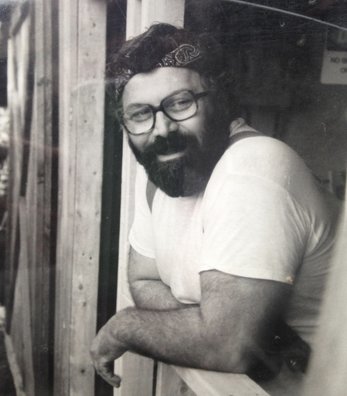 Vincent F. Parlato - early 1980s - my father The garbage truck roared it's way towards our house. My sister, Lisa, and I, jumped up from the couch to peek out the window. This was before the days of automated sanitation trucks that lift your plastic trash bin with a mechanical arm. Back in the day, it took real men all sweaty and muscled to hoist your trashcan by hand and dump it in the back of the truck. Men with youth, and vigor, ripped abs and brawny biceps in jeans and t-shirts clingy with perspiration. For two teen-aged country girls living in rural upstate New York, the weekly arrival of the garbage truck was a Junior Chippendales event.
My father, "Vinnie", chuckled at our gawking, amused with his oldest daughters and their newfound interest in the masculine form. "Who's out there today?" he said. Dad walked up to gawk out the window too. The truck halted at our driveway and two young men emerged and descended upon our trashcans. One was Black. One was White. "Hey, the moolie's here! " he cracked, laughing. "Daaaaad! Stop it!" my sister and I both said. Moolie. Short for "moulinyan", an Italian word meaning "eggplant". It is a derogatory term that refers to a Black person akin to using the "N" word in English. It was difficult to hear my father say this. Harder still to stop him from saying it. Some internal force tightened in my stomach. My dad was a first generation immigrant. His father emigrated from Sicily, landing at Ellis Island in the early 1900s during "The Great Arrival", an influx of southern Italians seeking a new life in America. Grandpa settled in Buffalo, New York. What I didn't know until years later was he entered into a society that, as it has been for decades, placed a value on how light your skin was. At that time, Italians, especially the dark, swarthy Sicilians, were viewed with malice and suspicion. In the South for many years they were labeled as "black" on census records, and even became the victims of lynching. The closer to "white" you were, the better your chance of obtaining employment, safety and acceptance. Italians and Blacks were in direct competition for jobs and upward mobility, so Italians made every effort to differentiate themselves from their African American counterparts. This was the atmosphere into which my father was born in 1932. There he assimilated all the contempt and condescension towards a people he considered to be his rivals in school, in society, and in life. I loved my dad. 6'3" with massive arms and legs like tree trunks. He was big and hairy and loud in language and laughter. His presence filled a room. I was safe with him, and I was sure he knew everything. I remember the day I found out he did wrong things sometimes. I was in first grade, sitting with my little girl friends around a cafeteria lunch table. Amid glass milk bottles and the crinkle of the wax paper around our sandwiches, we complained about boys, and Rodney in particular. "I don't like Rodney," said Nancy. "I don't like him either. He's mean," said Faith. "Me neither, " I chimed. "He's a real bastard." Collective gasp. "Uh ohhhhh!" said Shirley. " You said a swear word!" "No I didn't." I knew I hadn't. "Yes you did," said Janice. "That's a swear word!" "No it's not. My dad says it all the time." I sucked my teeth. What did they know! I was sure my dad would never swear. Until I went home and asked my mom. "Mom, is bastard a swear word?" "Yes, Susan, it is. You should never say it." Wow. My dad - swears. I was so crushed and confused. My dad is good. Why does he do this bad thing? As I grew older I eventually learned about slavery in America, the Triangular Trade, the Civil War and the tragic history of my country. As a New Yorker, I self-identified with the abolitionist leanings of "The North", wanting to disassociate myself from this brutal past. I was glad my genetic roots hailed from somewhere outside the US. I learned in school that oppression of Black people was identified as something immoral and destructive. But here in my own home, was this father I loved, who spoke so disparagingly about Black people. A father that said and thought "bad things." And then there was my mother, who taught me to never use the "N" word. How could my parents be so different? How could I reconcile all this in my heart? Young adulthood would bring further division, and further challenges to the contradictory beliefs in my head vying for definition. Enter the age of cognitive dissonance and it’s crucible of discovery. "Racism is still with us. But it is up to us to prepare our children for what they have to meet, and, hopefully, we shall overcome." - Rosa Parks "I refuse to accept the view that mankind is so tragically bound to the starless midnight of racism and war that the bright daybreak of peace and brotherhood can never become a reality... I believe that unarmed truth and unconditional love will have the final word." - Martin Luther King, Jr. A good friend of mine said to me recently, "but there is still a long walk ahead of us to eliminate the racism that exists in our country today. Especially recently I have felt that our quest for equality has been given a heavy blow..." Indeed, a blow has been dealt, but to whom? And why has it felt so heavy? The issues are complex. There is the overt, in-your-face racism of the KKK and White Supremacist groups. And then there is the more subtle, pervasive, hard-to-pin-down kind that has become institutionalized. The racism of White Privilege. Both have been dealt a blow. My response to her was roughly this: "The walk ahead of us is exactly my point too. I invite people, especially White people like myself, to really be honest with and examine our own inner sanctum. That's why I write and confess my own journey in recognizing the prejudices I had within my own head that I didn't even realize were there. When I was young, I had long thought that I was "color-blind" as some folks say. I don't really support the use of that word now. But I once did. I thought I treated everyone with fairness and equality. I convinced myself that I did. In reality, I had many preconceived notions that I didn't recognize. I had to see it in myself before I could admit it. It should be said that those thoughts were not malicious thoughts. I didn't want to hurt anyone. They were just ignorant thoughts. "Ignorant" in the sense of "not knowing". I mean no insult when I say this...but In general, I find many White people are that way, regardless of political affiliation. Most are not intending to be malicious. They just "don't know" what they "don't know". It is often reflected in the kinds of questions I get asked by White people. As Dr. Beverly Daniel-Tatum writes, often White people are deathly afraid of talking about racism with Black people. They haven't had to think about the reality of racism, so it has not been a topic in their conversations to any large degree. They're afraid of their lack of knowledge being exposed. They're afraid of saying something that would make them appear unintelligent. So they do not engage in conversations about racism with Black people. But because I'm White, many White people feel comfortable asking me things about my inter-racial marriage or my husband's thoughts on things or my children's experiences. Which is fine. I invite the dialog. It needs to happen. I want White people to be comfortable asking the questions they ask me. But it also shows me that White people have a lot to learn about racism in this country. The fact that they are surprised by its persistence in America speaks volumes to me. It's been here for so long. Black folks have been talking about it for so long. White folks have not wanted to face it or deal with it. Rather they've said things like, "Slavery happened a long time ago. Why are we still talking about slavery?" or "We've had a Black president now, so don't we live in a post-racist society?" or "Jim Crow was done away with decades ago. Why all the anger?" Because racism never went away. Black folks have known this for a long time. White folks are just recognizing this truth. Honestly, I don't feel that our quest for equality has been given a heavy blow in a negative sense. I feel the lid has been blown off, and we can finally see the sickness inside. Maybe now the infection can drain and has a chance to heal. But it will take guts for people to look at themselves. And from my experience, and the questions that have come my way, it is not relegated to one side of the the political aisle. It has a lot to do with White privilege....and there are many White, privileged Republicans and Democrats who have no idea how they contribute to the racial divide. But now.....there is the invitation to talk, and get behind another person's eyes....and see how they see......and make internal changes. This year, celebrate King's birthday in a more sentient and intentional fashion. Do you have friends of other races? If not, then make some. If so, do something together that you could not have done 50 or 60 years ago. Be mindful of the gift we've been given for the opportunity to rise up out of our past and make that "bright daybreak of peace and brotherhood.......become a reality". Be deliberate. With kindergarten done for the day, I was hungry for a snack. A plate of cookies sat on the table. The old radio on the counter cranked out a tinny Doris Day. “Que Sera, Sera? Whatever will be, will be.” My mother sang quietly along with Doris as she rinsed silverware at the faucet.
What will it be? Which cookie is the biggest? My finger touched each cookie as I recited the familiar words: “Eeny, meeny, miny, moe, Catch a n#$@&r by the toe, If he hollers let him go, Eeny, meeny, miny, moe.” I reached for the chosen snack, but my mother’s hand stopped me. Her eyebrows came together in a troubled wrinkle when she knelt down beside me. I felt the weight of her hands as she set them on my shoulders. Am I in trouble? Her words came out in quiet, measured tones. “Susan, I don’t ever want to hear you say that word again.” “Which word, Mommy?” I had said many words. Which one was "that word"? My mother drew me close to her. The “N” word struggled out from her lips. “N#$@&r. Do you know what it means?” To me, the word sounded like “booger”. I had always imagined it to mean a big monster made entirely of boogers all green and yellow and drippy, so of course you would not want to have any bodily contact with him. A toe was a small enough appendage to grasp without getting your hand too sticky. He would not like you gripping him by the toe, so he would open his dark toothless maw and let out a wretched groan. Then, you would let him go. I thought I knew the meaning of the word in question, but apparently I did not. My fingers fidgeted with a shirt button. “No. What does it mean?” “It’s a word that some people use when they’re talking about a Black person. It’s not a nice word. It hurts people’s feelings. We don't use that word.” It means a Black person? My 5-year-old brain had trouble processing this thought. Why would anyone need to catch a Black person in the first place, and by the toe no less? Why catch anyone by the toe? An arm, maybe. But a toe? The more perplexing questions were, why was there a word that was meant to offend a Black person when he or she had done nothing to you? And, why was this in a children’s poem? It was my first exposure to the concept that some people devalue the humanity of another because of skin color. My mother’s hold tightened. “You’ll never use it again, will you?” “No, I won’t.” I said. There was no reason to, now that I knew what it meant. It made no sense to use it. Racism. It takes root at a very early age. I had had a glimpse into the world of adults where individuals said things to wound someone else who was merely different than themselves. The purpose was to inflict pain and degradation, without cause. My wise mother had spoken into my heart that afternoon and set a precident. I'm thankful for a mother who seized the moment and planted the seed to examine and question while I was so young. Still, a peculiar door was cracked open that day, and a little bit of my innocence ran through it. "
“To me, the scariest part of what we saw with Donald Trump was not understanding how much racism still existed in this country,” Reiner continued. “It was kind of papered over for a while.” A friend of mine posted this article on Facebook. The author of this article says," So while Trump and the GOP and their racists voters will enjoy their victory now, they have ignited a progressive wave of rage that is going to bury them and drag them kicking and screaming into the future America deserves. http://addictinginfo.org/2016/11/15/director-rob-reiner-moron-trump-is-last-gasp-of-the-civil-war/ These are words by Rob Reiner today. I love Rob Reiner. I love the movies he makes. I love him as an actor. But these words are incredibly disappointing in what they reveal. In this post election environment, I don't condone the things hate groups are doing in their actions toward others. I have skin in this game. My husband is Black, my children are mixed and the threats being made towards others have personal meaning to me. I know what a burnt rainbow flag thrown in a yard means, as happened in Rochester, NY. It's akin to a burning cross on a lawn. I also maintain that those hate groups do not represent the Republican Party. There are many Republicans I know and none of them are a part of or defend such activity. For Reiner to brand all GOP voters as racist is uninformed at best, and mean spirited at worst. In like manner, I cannot support the violent, destructive activities being carried out by those protesting Trump's election. Businesses are being destroyed and people feel their safety is being threatened by what have now become hundreds if not thousands of people rioting in the streets. This is not “loving” behavior either. There are Democrats who say the rioters do not represent their party, and neither do they represent Hillary Clinton. I believe them. I do not know how this will all proceed regarding Trump. I am as eager as the next person to see what happens. Numerous people in this country were going to be unhappy with the outcome of the election no matter which way it went. And so here we are. One issue stands out above the rest, to me. The "racism" issue being levied against Trump and anyone who voted for him is striking. I have long known there are places in this country where I will not live or travel to because of the hate groups and the intensity of the intolerance that exist there. I won’t put my family or myself in harms way like that. Having lived in Harlem, found a place within in the Black community, and having married a Black man, I know the arguments against racism by Black people have been around an inordinate amount time. Reiner says, “it was papered over for awhile. ” Papered over? To whom? Not to the Black community. Dr. Beverly Daniel Tatum, a Black female psychologist and author of Why Are All the Black Kids Sitting together in the Cafeteria? says: "Talking about racism is an essential part of facing racism and changing it. But it is not the only part. I am painfully aware that people of color have been talking about racism for a long time. Many people of color are tired of talking, frustrated that talk has not lead to enough constructive action or meaningful social change.” Mr. Reiner, if you could not see it until now, if you thought it had been “papered over” and ended at some point, you are sadly, ignorant, or blind, or both. I don’t say “ignorant” to be insulting. I mean it according to its definition: lacking knowledge or comprehension of the thing specified; unaware; uninformed. http://www.merriam-webster.com/dictionary/ignorant For a man of your wealth and access to the world, this SEEMS to indicate a lack of intentionality on your part to truly understand those who are different from you. Have you not taken seriously the news this past year? I am saddened to find how far this is from the definition of “progressive”. I hope and expect progressives to be more fully informed, especially a man of your stature. As a White person myself, I find that White people in general recoil when challenged with discussions of race. When Black people bring up racial injustice, many White people shut it down. They have not stood up and spoken out against the shootings of Black men, women and children by White police officers. They have not "heard" and accepted the pain of this recurring issue. I don’t say this lightly. I do have family members that have been in the police force, and I love and respect those men and women whose lives are endangered every time they report to work. Still, it grieves my heart to hear of “one more shooting.” Yet the White community largely remains silent. When confronted with "Black Lives Matter", the frequent response is, "Well, ALL lives matter, really." That in itself is dismissive of the message that a specific community is in pain because their loved ones are being killed. When that ache is spoken of in a cry to alleviate it, the “All lives matter” response does nothing to comfort or bring resolution. This subjugation is felt, daily, in homes of Black Americans across the country. It’s been happening for years, but only now is there a collective White voice speaking out against what they define as racism. In my own writing about self reflection on the part of Whites to examine the possibility of an inner bias, a common response from White people is, "You know, Black people are racist too. What about reverse racism?" That is not the point. Facing the prejudices in ourselves, which is often times unrecognized, does not merit finger-pointing in the other direction. That becomes "transference" and "deflection". White people don't want to consider themselves "racist". It is a heinous thought to most, which is a good thing. But, they don't know what they don't know. And now, there is all this talk about racism and Trump and "the Deplorables" by a vast number of White people. But is it truly genuine? Trump is not the only person to examine. It’s time for self-reflection even by those of us who are claiming racial foul. Are we White people in actuality ready to participate fully and with vulnerability in this dialog? Or is this merely playing the blame game in order to find a sufficient scapegoat? I hope they (we) are ready, because it's time. And if that kind of transparent dialog can come out of this election process, then I welcome it, and have reason to hope in the American people and the healing of the racial divide . |
Susan Parlato RevelsArchives
June 2024
Categories
All
links to other sites
www.abuacademy.com
|

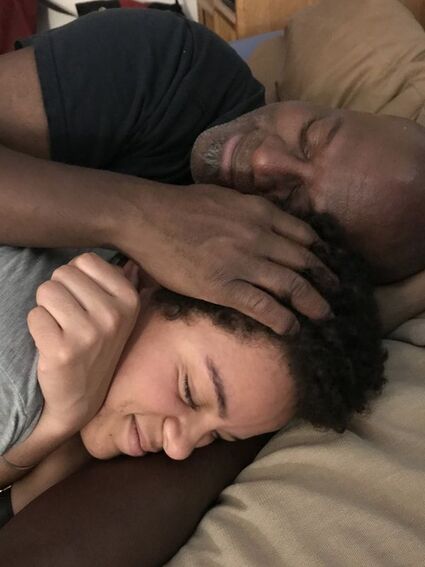
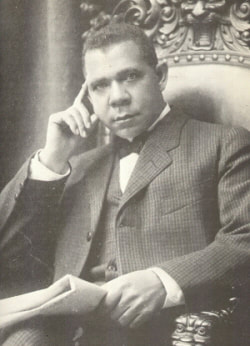
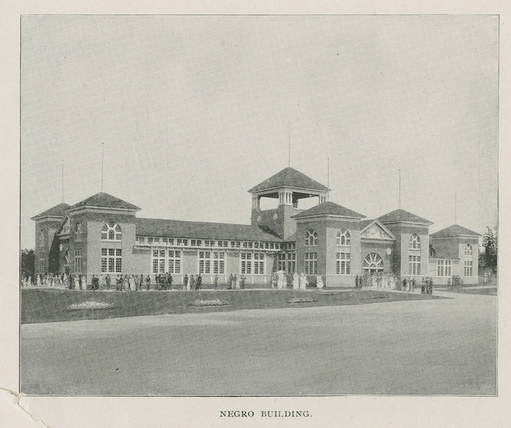

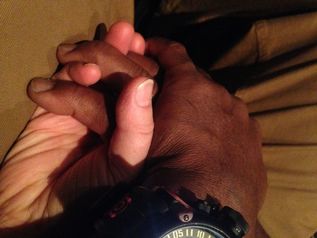
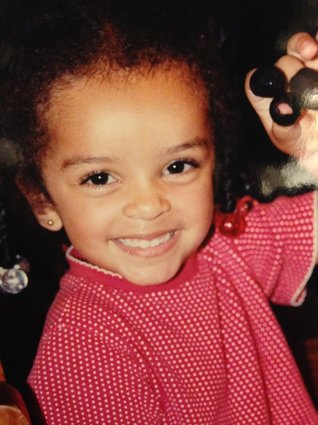
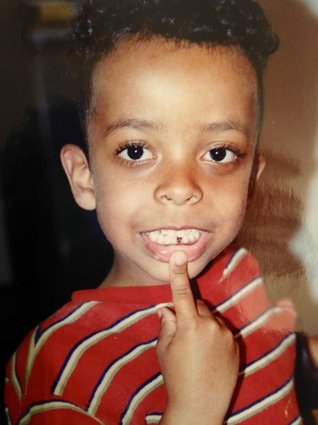
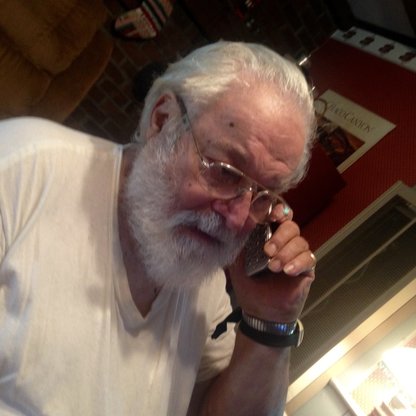
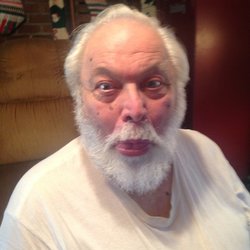
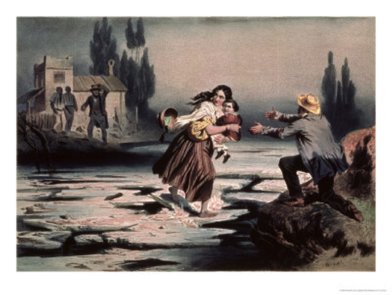
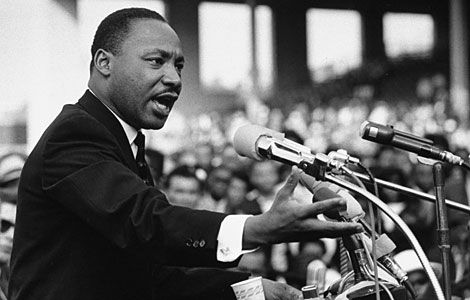
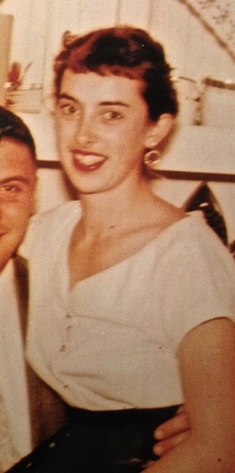
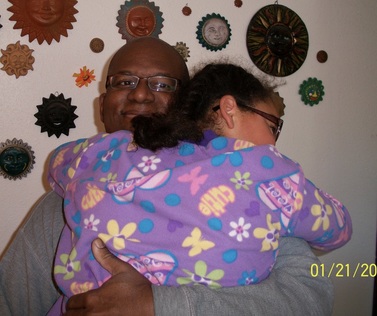
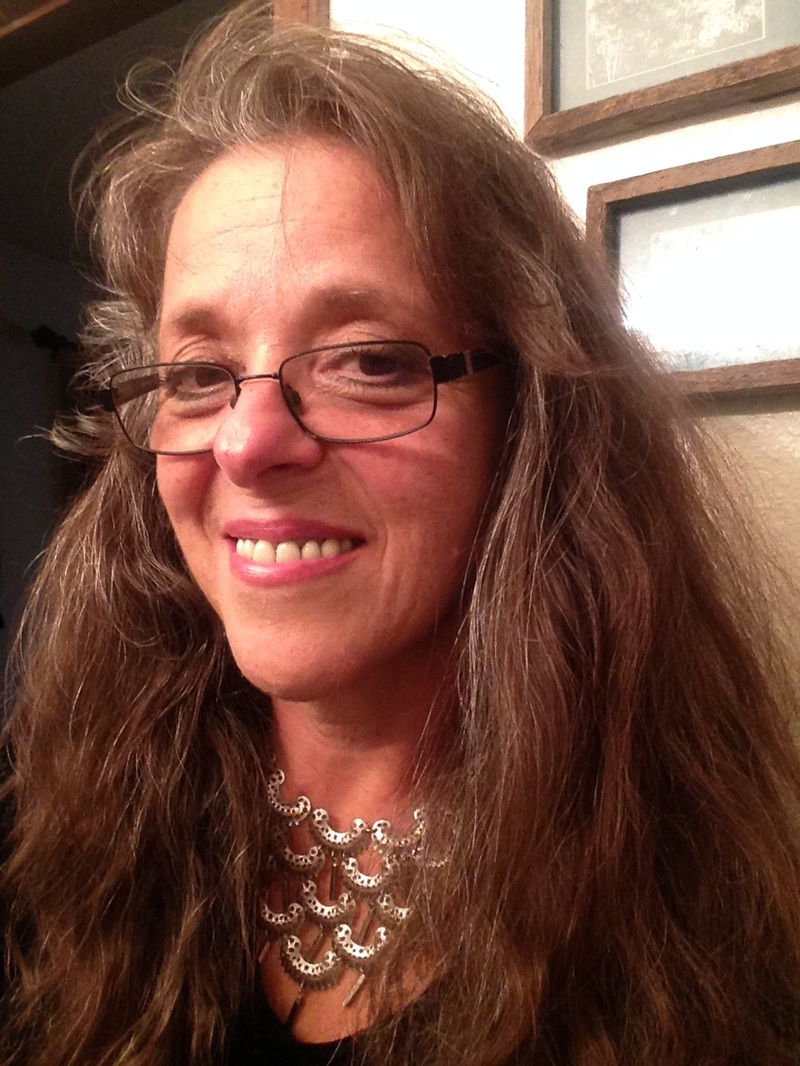













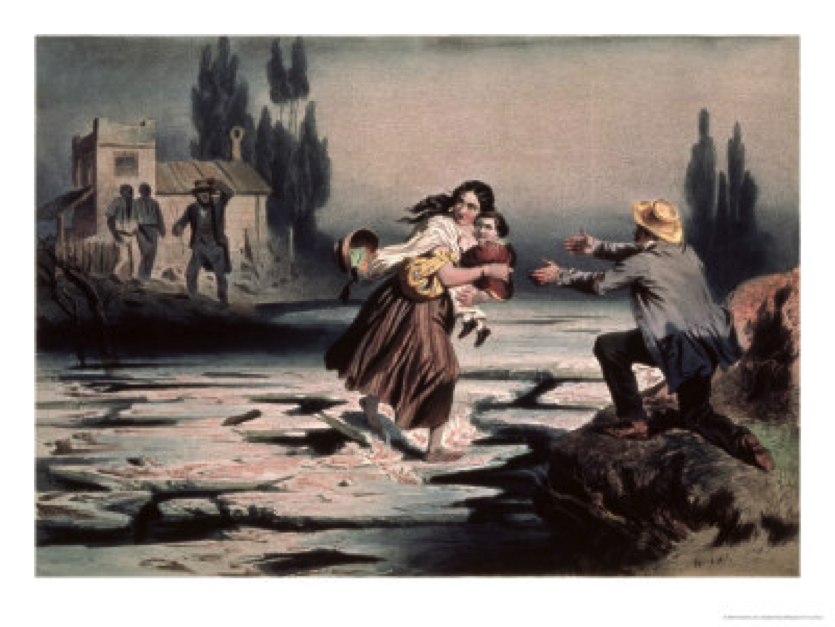

















 RSS Feed
RSS Feed